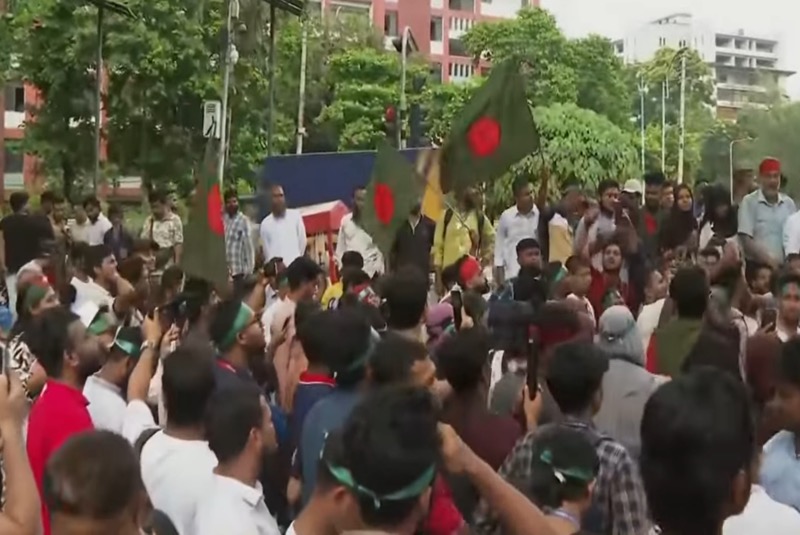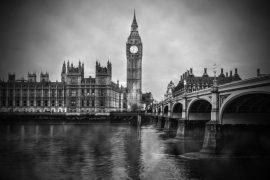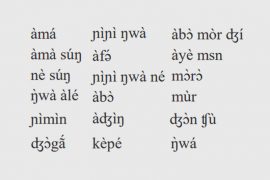Sheikh Hassan’s sudden resignation and her flight to New Delhi have elicited different reactions. The situation is strange and unprecedented. India is not only Bangladesh’s neighbour but has the longest frontier with that country. It helped the people of Bangladesh liberate their country in 1971 — despite threats from the United States of America and on the strength of a treaty of friendship concluded with the Soviet Union.
Over the years, the relations between the two countries, especially during the tenure of the Awami League, have been close. Prime Minister Modi and the former Prime Minister Sheikh Hasina have had a close understanding. It would not be an exaggeration to say that among India’s South Asian neighbours, Bangladesh has been the most preferred country.
More recently, the relations between the Modi government and the government of Sheikh Hasina have assumed stronger political and economic dimensions. However, this was resented in Bangladesh— particularly in economic agreements and deals with chosen Indian corporations like the Adani group. Indian investments in Bangladesh by leading Indian companies like Birla, Tata, Hero Motors, etc, are substantial, amounting to well over ten billion dollars — more than investments from any other country.
In the eyes of the people of Bangladesh, these investments have brought very little employment and much profit to Indian companies. There is a feeling that Sheikh Hasina succumbed to pressure from New Delhi to undertake such deals, which weighed heavily to the advantage of the Indian corporate houses. For example, officials and the media in Dhaka openly criticised the purchase of thermal power at an exorbitant price from the Adani group at a time when Bangladesh had surplus power.
Worse, this particular deal between two sovereign Nations — instead of two companies — gave it unprecedented endurance. Investigated by reliable journalists, it became a sore point in India-Bangladesh relations during Sheikh Hasina’s tenure.
Furthermore, the Modi government’s treatment of minorities, especially Muslims, became a sore point. That the Home Minister of India referred to Bangladeshis living in India as ‘termites’ was not lost on the people of Bangladesh. Despite such denigration, Sheikh Hasina treated the Modi Delhi government with special favours; she came to Delhi as recently as 9 June 2024 to participate in Modi’s swearing-in ceremony when he took charge as the Prime Minister of India for the third time.
Given this background, it is surprising that Modi and his ministers have not met Hasina after she arrived in India. Ajit Doval, India’s National Security Advisor, is the only senior person who has met her.
In his short statement of less than five minutes, the Minister of External Affairs, S. Jaishankar, informed the parliament that Sheikh Hasina was in India ‘for the moment.’ As it happened, she is still in India, awaiting asylum – or return to Bangladesh.
Hasina’s sudden and dramatic resignation after a massive protest by students and the public at large happened after the state security apparatus killed more than 400 protesters and arrested an even bigger number. The army advised her to step down as public protests led by students became massive, on whom the army didn’t want to use force.
Given this background, the government in New Delhi appears to be in a state of disbelief at the sudden turn of events in Dhaka. Sheikh Hasina’s fifteen-year rule has been marked by rigged elections, inhuman treatment of dissidents, a complete clampdown on freedom of expression and total control of national institutions, including the judiciary and the Election Commission. Political opponents have also been imprisoned indefinitely.
That despite such ‘Controls’, a government can be brought to its knees must be a matter of more than neighbourly concern to the Government of India. New Delhi has been exercising similar methods on its opposition and tightened controls on its media and public institutions.
Intolerance of dissidents in all forms is common, and so is the drastic curtailment of freedom of expression. That this model could face public uprising of such massive scale and that too so close in the neighbourhood appears to have disoriented the rulers in Delhi.
Furthermore, the question of giving Sheikh Hasina asylum in India has not found favour. Although in earlier times, Sheikh Hasina had spent six years in India (after her father’s assassination in 1975), the possible demand by Bangladesh to repatriate her must weigh heavily on granting her asylum.
An Interim government, led by the Nobel laureate Muhammad Yunus, has been formed in Bangladesh. In his public statement, Professor Yunus, while commenting critically on India’s role during Sheikh Hasina’s rule, has not closed the door to improving relations.
The ouster of an authoritarian ruler who had turned democracy into a farce signals that the destruction of democratic institutions, intolerance of dissidents, muzzling of the press and curtailment of freedoms can be successfully resisted. However, the situation of Indians and Hindus in Bangladesh is of great concern, especially given the ideological stance of the ruling BJP on the status of minorities, especially Muslims in India, who have been subjected to atrocities.
It is worth noting that, in his short statement made in parliament, the Foreign Minister said that a few instances of attacks have been reported, but by and large, Hindu temples in Bangladesh were being protected. Yet, at the same time, the Government of India has not offered refuge to the Hindus of Bangladesh who were fleeing from the country. Instead, India’s Home Ministry created a five-member committee to monitor the safety of Indians in Bangladesh.
In the meeting of opposition parties with the Foreign Minister, Rahul Gandhi, the Leader of the Opposition, asked if a Foreign hand was behind the events in Bangladesh. In response, Mr Jaishankar said there was no information on this so far, and the government was alert to this issue.
The government of India and the people have seen in recent years that the people’s movement has dislodged an elected government in Sri Lanka. Nepal and Maldives have witnessed disturbances—and an ongoing civil war in Myanmar is continuing between a military regime and people’s militias.
It is no exaggeration to say that India is surrounded by political turmoil. However, the political events in Bangladesh are of particular concern. Above all, given that democratic institutions have been deprived of their authority and have become tools of the central government, given that freedom of expression is being curtailed, Bangladesh’s political changes seem to assume a strange echo in India. Some political leaders like Mahbooba Mukti have described it as a “warning signal.”
Are the unemployed youth seeing a ray of hope? What do so many reverberating echos in cartoons, memes, irony and satire, often at the expense of the government in power, reflect?
-30-
Copyright©Madras Courier, All Rights Reserved. You may share using our article tools. Please don't cut articles from madrascourier.com and redistribute by email, post to the web, mobile phone or social media.Please send in your feed back and comments to [email protected]











